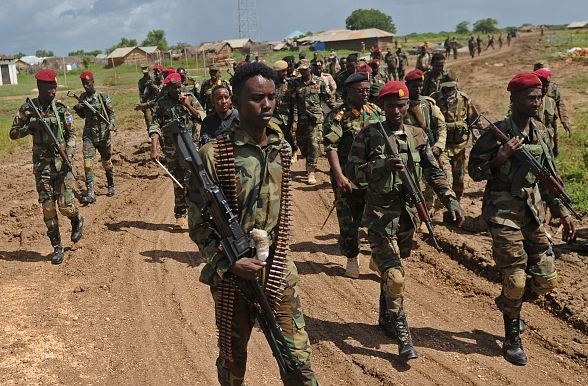El-Ghassim Wane, Special Representative of the Secretary-General in Mali, says the security situation in the country remains volatile and marked by pockets of terrorist violence with devasting consequences for civilians.
Wane, who is the Head of the UN Mission in Mali, MINUSIMA, said this while briefing the Security Council on Wednesday at UN headquarters, New York.
The UN top official briefed the Council on major developments in the West African country over the past three months.
MINUSMA was established a decade ago following insecurity in the north and a failed military coup, which led to the signing of a peace deal between the authorities and two armed group coalitions in 2015.
Wane updated ambassadors on the peace process, and advances in the transition to civilian rule following the coup of three years ago, but began by focusing on insecurity, amid rising humanitarian needs.
He said the security crisis in the northeast region of Ménaka had worsened, recalling that he had first sounded the alarm last year.
According to him, since January, there has been a resurgence in fighting between the Islamic State in the Greater Sahara, ISGS, and the militant jihadist group JNIM.
Despite operations by the Malian forces, and Niger, the security and humanitarian situation remains disastrous.
More than 30,000 displaced people have converged near the main city, also called Ménaka, and roughly 2,400 have sheltered near a MINUSMA camp, recalling his last visit to the region three weeks ago.
“The flow of internally displaced persons has increased the strain on the humanitarian response, with populations having urgent needs for drinking water, food and medicine and shelter.
“Listening to those displaced persons who are begging us, literally, for drinking water was a shocking experience,” he added.
MINUSMA peacekeepers continue their efforts to protect civilians, including through day and night patrols in coordination with the Malian forces.
The Mission also promotes reconciliation efforts aimed at defusing intra-communal tensions.
Meanwhile, Gao and the central region of Mali have also seen confrontations between ISGS and JNIM. Some armed groups that signed the peace deal have also been involved in fighting against the ISIL offshoot.
Wane said the operations of the Malian forces had generally disrupted extremist activities in the centre, forcing them to disperse toward the neighboring regions of Timbuktu and Gao.
“Under this pressure, extremist groups have increasingly begun to use IEDs (improvised explosive devises) to hamper the ground movements of the Malian Defense and Security Forces, in addition to surprise attacks on various police stations along the main supply lines,” he said.






